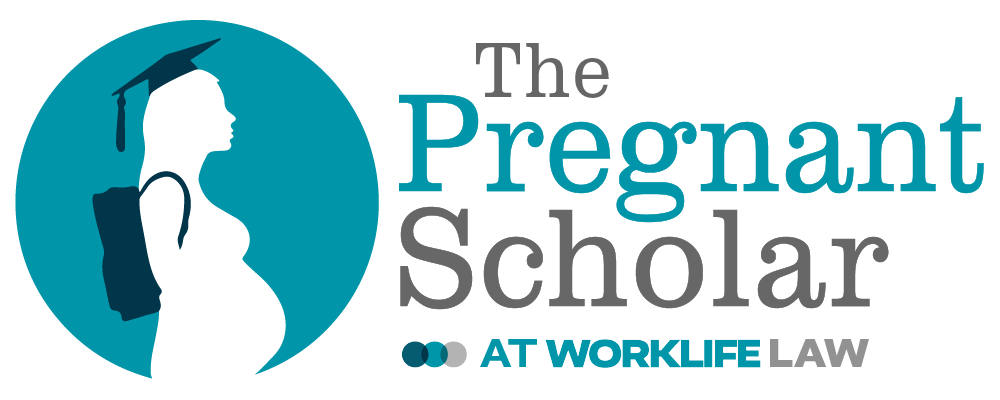
Pregnant and parenting faculty/staff
Employees of an institution of higher education have rights under Title IX and various employment laws that protect both health and income during pregnancy and parenthood.

Hiring and Conditions of Employment
Both federal and state employment laws prohibit employers from basing employment decisions on sex or sex-based characteristics (either real or perceived). This includes a prohibition against pregnancy discrimination, as well as discrimination because of someone’s assumption that you might become pregnant. It also includes discrimination based on stereotypes about how you will or should behave because you are a mother or may become a mother. Institutions of higher education are also prohibited from asking your marital status or penalizing you because of it while recruiting for employment.
Key laws protecting your rights and ensuring non-discrimination include:
- Title IX
- Americans with Disabilities Act
- Pregnancy Discrimination Act
- Title VII of the Civil Rights Act of 1964
- Family and Medical Leave Act
Pregnancy or Parental Leave
Your university likely has its own policies on leave for employees, which may provide for paid or unpaid leave through a maternity, family, or parental leave policy, or through disability benefits. Additionally, employees who need leave for their pregnancy and/or childbirth have a number of protections under Title IX, the Family and Medical Leave Act, and various disability leave programs.
Job Protection
Title IX requires that, at minimum, school employees be provided unpaid pregnancy and/or childbirth-related leave for a “reasonable” period of time. Following your leave, you are entitled to be returned to the same status you had when you left, or to a comparable position. Under Title IX, you cannot be penalized for your leave with lower pay or loss of promotion opportunities or other privileges.
In addition to Title IX, the Family and Medical Leave Act (FMLA), along with state family and medical leave laws, may also provide job-protected leave. The FMLA provides you with 12 weeks of unpaid leave for pregnancy, childbirth, and baby bonding, and allows you to keep your health insurance, if:
- your institution employs more than 50 people in a 75-mile radius,
- you have worked for the institution for at least 12 months (does not need to be consecutive), and,
- you have worked at least 1250 hours in the 12 month period prior to the leave.
Paid Leave
The pay that you receive while on leave, if any, will depend on your individual situation. Women typically receive paid leave through their university’s maternity or parental policies, and/or disability insurance.
Typically, women with uncomplicated pregnancies who have disability benefits through their state or employer are considered eligible for disability benefits within the last month of their pregnancy and after childbirth for 6 weeks (vaginal delivery) to 8 weeks (cesarean delivery). Those who have impairments as a result of their pregnancy or childbirth may be entitled to receive benefits for longer, based on their condition and ability to work. Consult your employment contract or contact your HR department or union representative to learn more.
- For more information on federal and state leave laws, see: http://babygate.abetterbalance.org/know-your-rights/
On-the-Job Accommodations
Under Title IX, pregnancy, childbirth, false pregnancy, termination of pregnancy, and resulting disability or recovery must be treated the same as any temporary disability for all job-related purposes, including the provision of accommodations and other services. Additionally, you may be entitled to accommodation of your pregnancy-related disability under the Americans with Disabilities Act. Discouraging employees from seeking or using their legally guaranteed accommodations may be considered discrimination. Talk to your human resources department, your union representative, or a Title IX Coordinator for more information about receiving an accommodation.
Additional resources:
- Our sister website Pregnant@Work provides information on obtaining workplace accommodations.
- For more information on common conditions and accommodations, see our list.



